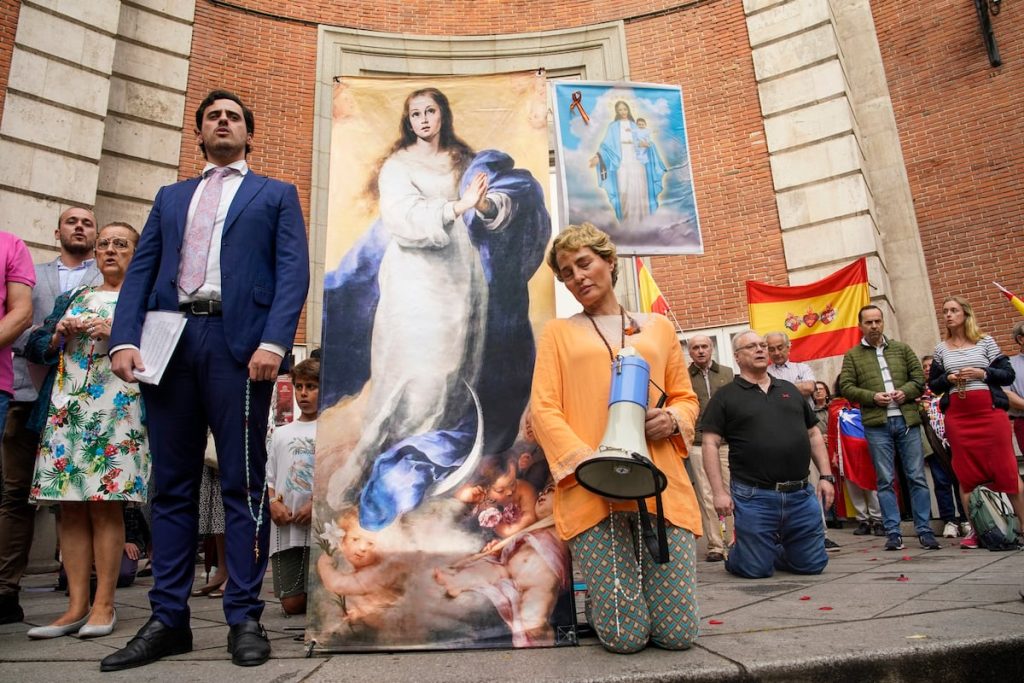More than a hundred people gathered on Saturday to pray a Rosary for Spain on the streets of Ferraz in Madrid, near the national headquarters of the Socialist Party (PSOE). Despite the rainy weather and opposition from the Electoral Board and the Government Delegation in Madrid, the prayer session proceeded peacefully. However, some attendees displayed pre-constitutional flags and hurled insults at the Spanish President, Pedro Sánchez. Controversial statements such as “Son of a bitch”, “Corrupt”, “We must burn Ferraz”, and “There is cocaine in that headquarters” were heard. The gathering was authorized by the Superior Court of Justice, against the advice of the Electoral Board and the Government Delegation.
The organizer of the prayers, José Andrés Calderón, remains determined despite receiving three fines for disobedience in the past for such gatherings. He maintains that the prayers have no political connotations and are not intended to overthrow governments. Dressed in a crucifix, an elegant suit, and with a megaphone, Calderón insists that they pray in a house of God, located 200 meters from the PSOE headquarters. He believes that Spain cannot be understood without the cross and warns that the crisis of spirituality in the West leads to ideologies that replace Catholicism and ridicule those who defend the message of Christ.
After the prayer session, a man asked the attendees to respect the reflection day, but they blocked traffic, insulted Pedro Sánchez and Carles Puigdemont, and criticized the cleanliness of the upcoming elections. They also expressed support for the Argentine President, Javier Milei, praised bullfighting and the Civil Guard, and even called for the Ballon d’Or for Real Madrid’s player, Vinícius Júnior. As attendees began to leave, Calderón closed the event by urging them to return the next day and shouting “No step back. See you tomorrow. Long live Christ the King and long live the Virgin Mary”.
The organizers of the Rosary for Spain and the defense of the Catholic faith worldwide had initially requested authorization to meet every evening between June 1 and 15. The Electoral Board denied the gatherings on June 8 and 9, as they coincided with the reflection day and election day for the European elections. Despite this, the Government Delegation in Madrid approved the event for all days except those two, but Calderón filed a petition for the concentration to also take place on Saturday and Sunday. The Superior Court of Justice of Madrid ruled in his favor, stating that denying the gathering would violate the right to assembly.
The decision of the Superior Court of Justice contrasts with the denial of authorization for the annual Madrid Cyclonudista protest, where cyclists ride naked to demand the creation of bike lanes and raise awareness about the vulnerability of cyclists among motor vehicles. The Provincial Electoral Board of Madrid refused to authorize the event, citing that it fell on the reflection day. The clash in authorization decisions highlights the complexity of balancing freedom of assembly with respect for electoral processes and public order in Spain.


